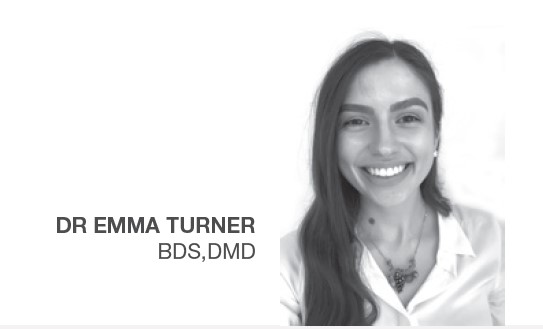
Having moved cities recently, I found myself consumed by planning and actioning my move at the expense of some aspects of my self-care
Firstly, my splint, which was admittedly close to needing replacement after having bruxed my way through the tougher years of dental school, had vanished from my suitcase. Moreover, having noticed each of my patients’ GPs detailed on file at work, it dawned on me that I too should search for a medical professional to consult should the need arise.

Having found myself in unfamiliar territory, I was paralysed by indecision when it came to finding new healthcare practitioners. Will the dentist down the road resonate with my approach to dentistry? Will the clinic meet my standards of infection control? Will the local GP be in tune with women’s health issues? Having experienced this as a health professional myself, I can only imagine the barriers that preclude so many from accessing dental services until excruciating pain or embarrassment about one’s smile finally compels patients to adjust their priorities.
This can apply to people from a variety of demographics for whom life gets in the way of looking after oneself - as is the case for busy professionals, new parents and full-time carers - or to people who feel disconnected from services - for instance, those with limited health literacy, young adults who are unfamiliar with navigating healthcare systems independently, those (such as refugees) that have newly settled in an area and those who require access to culturally-appropriate care.
Understanding barriers to self-care is a crucial aspect of our job that is inherent in the biopsychosocial model that we practice.
Whether we see patients six-monthly or six-yearly, the key to their oral health lies in habits built and sustained at home. In an ideal world, we exist primarily to complement those regimes and need to do so with empathy and understanding.
Yes, the dentist who scares their patients into flossing may elicit some change in their behaviour, but I am a strong proponent of adopting a more compassionate approach. We also need to appreciate that some of our patients are fundamentally disadvantaged by their home environments. If they grew up only with soft drinks in the fridge, without anyone to book their dental appointments in childhood, or with relatives for whom oral care wasn’t a priority, they’ll need more support to develop health-reinforcing habits.
Even  as dentists, our personal compliance with the messages that we advocate for may not be presently or historically perfect. We are human, after all. Every so often, I fall asleep with a full face of make-up, contacts in and teeth fuzzy from the sugar to which I succumb to sustain me on busy days at work. I’m constantly dehydrated, as I find myself without time to sip between patients. While twice-daily flossing may feel as natural as walking to my current self, my track record was far from perfect before I started dental school.
as dentists, our personal compliance with the messages that we advocate for may not be presently or historically perfect. We are human, after all. Every so often, I fall asleep with a full face of make-up, contacts in and teeth fuzzy from the sugar to which I succumb to sustain me on busy days at work. I’m constantly dehydrated, as I find myself without time to sip between patients. While twice-daily flossing may feel as natural as walking to my current self, my track record was far from perfect before I started dental school.
I also neglected to bring my retainer on my semester abroad and I’m now, as with many of our orthodontic patients, plagued by the subtle relapse of my formerly perfect occlusion. However, as we mature and adopt a greater sense of self-responsibility, one can hope that the greater trend that we follow involves predominantly health-promoting behaviours.
We often see patients who admit to not having looked after themselves in their youth and present with extensive unrestorable caries, but it’s a pleasure to work with patients who are eager to turn over a new leaf and to learn how better to care for themselves.
While there may be something in a perfect onlay prep or a beautiful composite, seeing tangible change in patients’ mindsets, and the accompanying improvements in their oral hygiene, is arguably the most rewarding part of our job. If dentists are seen to advocate for and embody perfection, they may paradoxically deter their patients from improving their oral health, as the goals that they set can be perceived as unattainable. We need to be realistic in implementing manageable step-by-step approaches to improvements in oral health. We need to ensure that patients can walk into our clinics without feeling judgement. We also need to be better as a profession at acknowledging our own hypocrisies, starting with the elephant (chocolates) in the tearoom.

Bio
Emma, a founding member of the Colgate Advocates for Oral Health: Editorial Community, completed her Doctor of Dental Medicine at the University of Western Australia as the Australian Dental Graduate of the Year 2020. She is passionate about contributing to the future of oral health through dental education, community engagement and research. She hopes to share her insights to encourage members of the dental profession to reflect on opportunities for personal and professional growth to benefit our patients and the wider community.
Article Published in Nov/Dec 2022 Dental Solutions